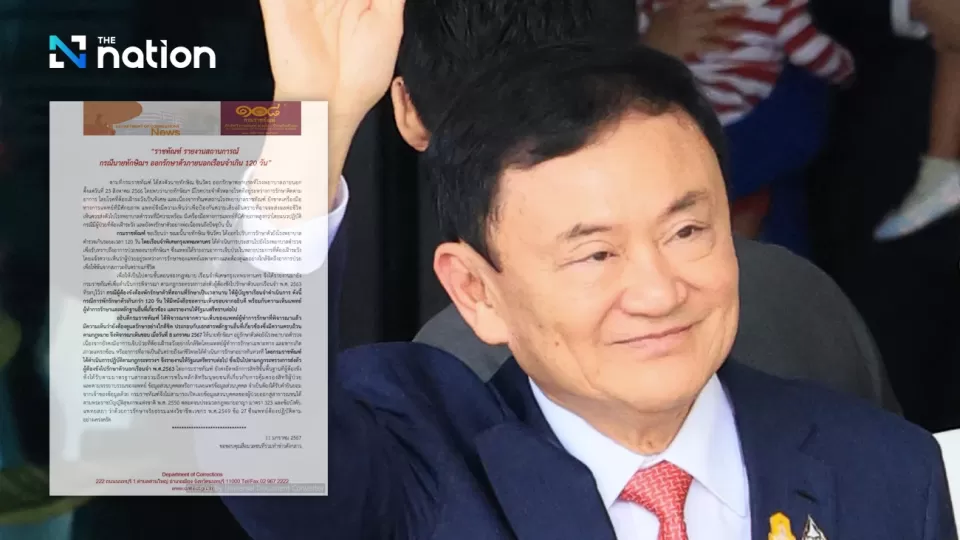January 12, 2024
BANGKOK – Director-general Sahakarn Petchnarin’s approval came on Monday after he took into account opinions from Thaksin’s doctors that the ex-premier still needed close medical attention and provided necessary documents, the department said in a statement.
“The Department of Corrections director-general agreed that Thaksin should continue his stay at the Police General Hospital because his illness requires close attention from medical specialists. In case of any complications, he will be able to receive immediate treatment,” the statement said.
It added that the department was dealing with the case in line with a 2020 Justice Ministry regulation on sending inmates for treatment outside prison.
The statement also noted that the department had notified Justice Minister Tawee Sodsong about the director-general’s decision.
Those actions by the Bangkok Remand Prison chief and the Department of Corrections chief are required by the ministerial regulation for cases where inmates are treated outside prison for longer than 120 days.
Thaksin, 74, was sent from the Bangkok Remand Prison to the Police General Hospital in the early hours of August 23, less than 24 hours after he returned to Thailand to face imprisonment for corruption following 15 years of self-imposed exile overseas.
The ex-leader, who served as prime minister from February 2001 to September 2006, was sentenced in absentia to eight years in prison. His prison terms were reduced to one year after being given a royal pardon.
In its latest statement, the Department of Corrections also maintained that it adheres to international standards and that the patient’s basic rights must be respected. It said that no information about Thaksin’s treatment would be disclosed without his consent. The department cited the National Healthcare Act of 2007, the Penal Code, and the Medical Council of Thailand’s 2006 regulations on the ethics of the medical profession.


